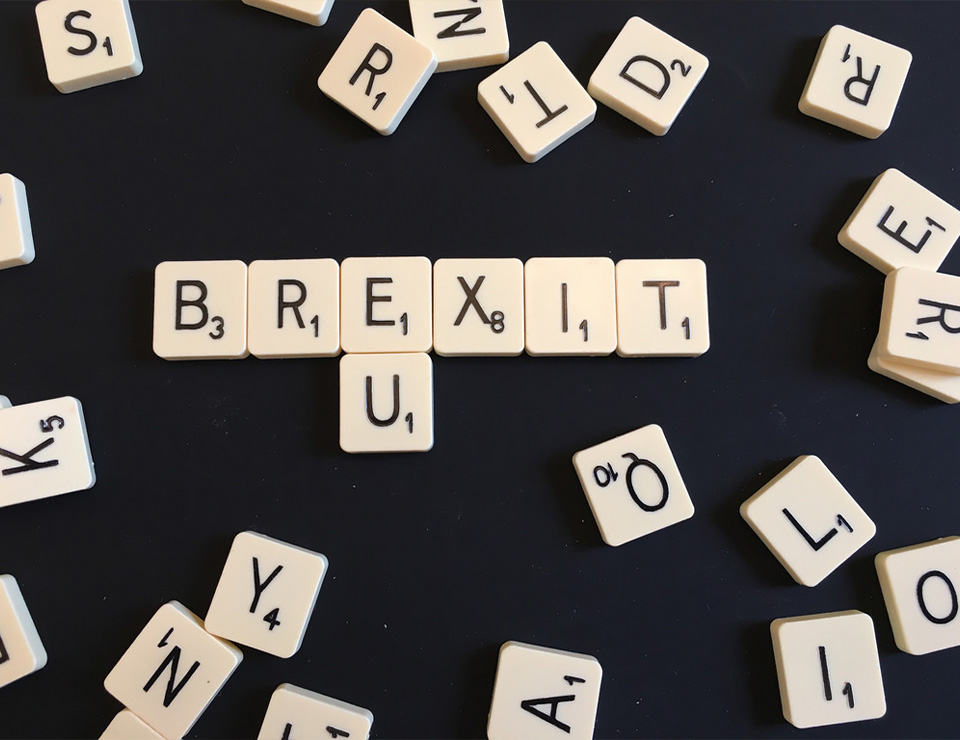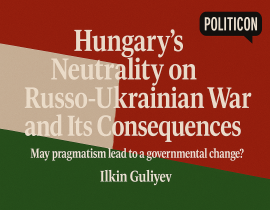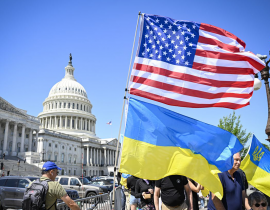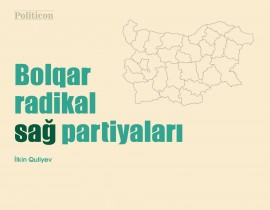Politicon.co
Brexit: to dare or not to dare?

On 23 June, the UK holds a referendum on whether to stay in the European Union or not, popularly dubbed as “Brexit”. Even before the referendum the unclearness on what to expect has been haunting Europe, while market analysts predict huge long-term costs for both Britain and the EU in case the country decides to leave. But what were the driving forces behind the very idea of the referendum, and how does it express the changing political landscape of the Kingdom? We will try to answer these questions in the first part of the analysis.
It is needless to say that Britain has always been proudly emphasizing for its special place in Europe. Many factors contributed to it, and among them are the British political tradition of “splendid isolation”, the “special relationship” with the United States and consequent unwillingness to enter into too far-reaching alliances with other powers, and finally, a sense of belonging to a different, Anglo-Saxon political tradition, that makes many “continental” practices unthinkable for the British. Finally, the country has always been known as a citadel of liberal economy, and thus Europe is often perceived here as overregulated and bureaucratic. So London did not join Western European countries that laid the foundation of the future EU in 1957; only in 1973 was the Kingdom admitted to the organization. Ever since, London has made numerous steps to preserve its maximum independence from Brussels, the most important step being its refusal to ratify the Schengen treaty, a document which established the principle of free movement of people across the Union member states. However, as the British economy underwent a dramatic neoliberal transformation in the 1980’s, when many traditional sectors, mostly in industry, were closed down in a matter of years, while the Conservative government simultaneouslysucceeded in making London a financial capital of the world, the access to a free economic zone as big as the EU was perceived as a benevolent thing for Britain; hence, Prime Ministers Thatcher and Major were known as ardent supporters of Britain being part of the EU. However, even that equivocal attachment to Brussels that existed started to trigger more and more of a popular discontent as the Union grew larger (13 new members, mostly representing former Socialist countries, have been admitted since 2004) and its regulations grew more meticulous and bureaucratic. The major sources of discontent were, like in many high-income countries, increasing numbers of work migrants from the less developed Eastern European countries ready to take up less-paid jobs and thus diminishing employment opportunities for the UK citizens, particularly those lacking sophisticated skills, as well as the sense of the lack of independence in economic policy that meant losses incurred by the EU regulations to some British industries. Just a few days earlier, representatives of the UK fishing fleet sailed up to London to pledge their support for the “Leave” campaign, emphasizing that up to the 60% of the fleet in the recent years has had to be kept at bay due to Brussels-imposed quotas.
The global financial crisis of 2008 and subsequent developments added pressure on British policymakers to thoroughly reconsider the Kingdom’s stance on Europe. While the UK was one of the hardest-hit big economies in the West in terms of economic slowdown and unemployment, it managed to recover relatively quickly, mostly thanks to liberal economic policies pursued by the new Conservative government elected in 2010 in the wake of depression. At the same time, most leader countries of the EU, except for Germany, failed to overcome the crisis that turned into a protracted stagnation; their centre-left governments proved, akin to the previous Labour government in London, unable to cope with the challenges. Increasing migration flows from Poland, Romania, Bulgaria and some other EU member states raised concerns in Britain and prompted the Conservative party to include “diminishing the net number of migrants down to 5-digit figures” by 2015 into the list of its policy priorities during their 2010 electoral campaign. Despite serious restrictions introduced into immigration legislation by the ruling Tory-Lib Dem coalition, the number was reported to equal about 230 thousand in the last year, and the failure to deliver the aforementioned target is widely believed to be due to the EU’s guiding principle of free labor market. The most dramatic consequence of this has been the unprecedented rise of the Independence Party (UKIP) that managed to become the third political force in England, if measured by the number of supporters. The party led by Nigel Farage is a typical representative of Eurosceptic forces quite common for many European countries in the last decade; it also adds to it a hint of traditional British mistrust towards “the continent” and a special emphasis on traditions and values. In the 2014 European Parliament elections the UKIP gained a shocking victory; in the Parliamentary elections next year, though having only one candidate elected Member of Parliament (MP) they were actually supported by 12.6% of voters, with the majoritarian system of elections preventing UKIP from acquiring significant weight in the Parliament. However, the Eurosceptic voices have been growing louder and louder, making it impossible for the incumbent government to ignore them; electoral reason for the Tories to flirt with the UKIP voters lies in the fact that they mostly come from the ranks of disenchanted former Labour supporters, and share rather leftish social-economic views. Hence, satisfying at least some of them on foreign policy matters might swing these otherwise left-leaning voters into the Tory camp in the long term. All these considerations moved Prime Minister Cameron into promising to hold the nationwide referendum as the crucial part of his 2015 campaign.
At the same time, Mr. Cameron launched a “Remain” campaign and has been heavily involved, after the Conservatives’ landslide electoral success, in the negotiations with Brussels to reconsider the terms of British membership. As the major factor of concern was uncontrolled migration, he particularly insisted on curbingbenefit rights to the unemployed migrants from the EU countries as Britain’s major condition for staying in; this measure is believed to pull many of them back home. The response recently given by the European Commission has been quite ambiguous as to whether this policy move would be permitted. This only added credits to “Brexit” campaigners among whom are many prominent Conservative politicians, such as controversial ex-London mayor Boris Johnson. Prime Minister’s support for remaining, justified by purely rational considerations that the exit would ensue numerous uncertainties and a rupture of economic ties, is often believed to have more political reasons: Scotland’s First Minister Nicola Sturgeon has already warned that her Scottish National Party which now holds 56 out of Scotland’s 59 parliamentary seats, would demand another referendum on independence. The Scots are indeed overwhelmingly pro-European, and this factor might be decisive in the upcoming vote. So, Mr. Cameron was once even called “a closet Brexiteer”, inferring that his personal views on Europe are much more skeptical than he purports them to be considered.
While the Labour party seems to be more unanimous in its support for the “Remain campaign”, it is much less clear how the votes of Labour supporters will be split. In some of traditional Labour strongholds in Northern England, polls show the share of Eurosceptics to approach 70%. The stance of current Labour leader Jeremy Corbyn is also not fully certain when it comes to his deep preferences: he is believed to choose the “Remain camp” mainly because some of the staunch rightists from the Conservative party are on the opposite side, and also maybe not to exacerbate his reputation of a political enfant terrible he has; but generally, the left wing of the party that he represents was anti-European ever since the 1975 referendum. Many of these diehard leftists felt deeply abandoned when the New Labour generation of Blair and Brown, much more cosmopolitan and less related to the working class, took over the party; these people now constitute the backbone of UKIP.
That said, the Brexit campaign has revealed a lot of deep cleavages and sore points on the British political map. Both mainstream parties are losing touch with the average voter, and are now trapped in the painful choice: either to give in to populist pressures and radicalize or to stick to the polished versions of their ideologies hoping not to lose to their rivals upper-middle class, “respectable” chunks of their electorate. This latter consideration means that no one is likely to move, and alternative forces enter the resulting “grey zone”. Parties like UKIP put very high stakes on this referendum as a chance to enhance its political presence as it could be much easier than under the majoritarian, conservative voting system applied in the general elections. While this picture is quite typical for Europe today, it is exacerbated in Britain by its ethnopolitical division- the Scots, Irish or Welsh feel more attached to Europe as they fear a new mode of English nationalism represented by Farage’s party. In fact, the recent political revival in Britain’s minor parts has been a breeding ground for Brexiteers in England: if Edinburgh or Cardiff have their own parliaments, apart from representation in Westminster, why don’t the English people have analogous institutions of representation? Many view the referendum as a chance to express this distinctly English identity. Though most commentators or voters agree on the probability of socioeconomic problems arising from the Brexit, many still stick to the “leave” vote out of the feeling that the country is not governed by its people. Elitist politics and growing divisions within the British society - that is what increases the likelihood of irrational voting behaviour. Add to that traditional British skepticism regarding Europe and bureaucracy- and we can now understand why the polls show a steady rise in the share of Brexiteers. 10% of the voters are still undecided though, so now, just a few days left to the referendum day, no forecast can be made for sure except for that the vote would be very narrow and some very small factors- “black sparrows”, if you want- might play a decisive role.
![]()
- TAGS :
- Brexit
- TOPICS :
- Foreign policy
- REGIONS :
- Western Europe





png-1748065971.png)



jpg-1599133320.jpg)

